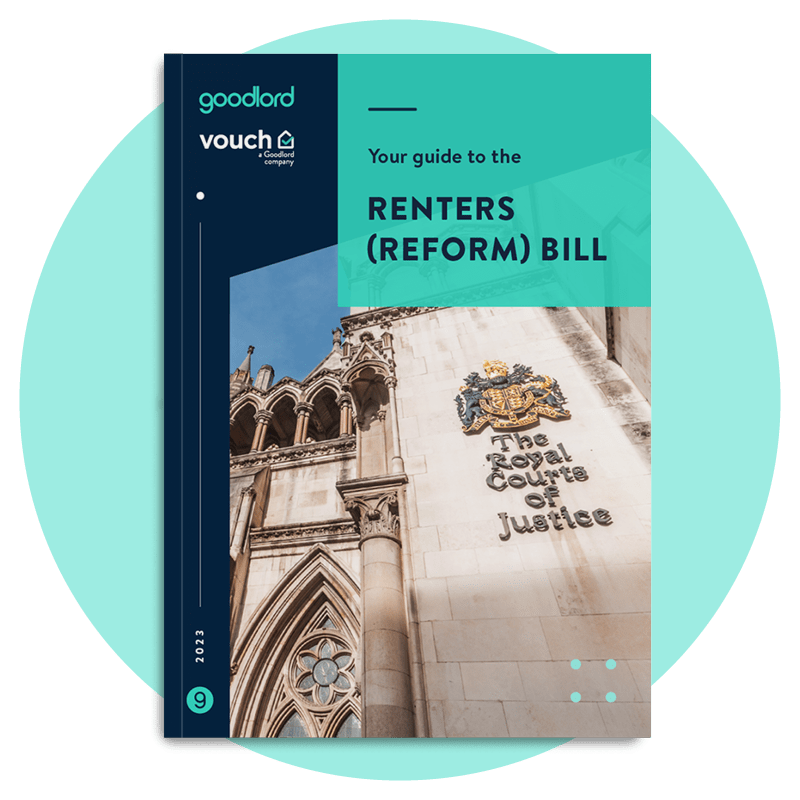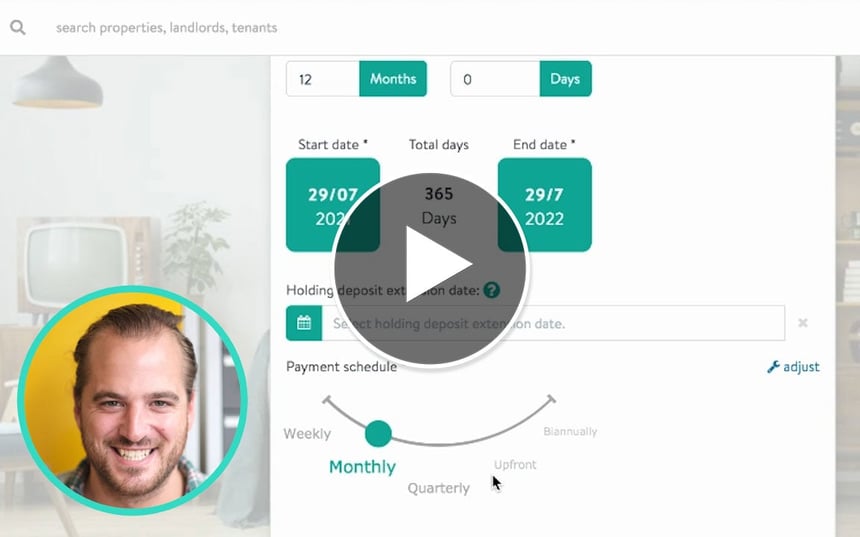What do Letting Agents Need to Know When Choosing Rent Protection Insurance?
For Rent Protection Insurance, some benefits make a policy stand out. But knowing what the policy wording means can help agents filter through the noise, as Oli Sherlock, Goodlord's Director of Insurance, explains.
Whether you know it as rent guarantee insurance or rent protection insurance, its purpose is normally the same: to protect your landlord's investment and help you protect your agency's bottom line.
Here's what a letting agent should look for in the policy wording when choosing the best product for you and your landlord:
- Rent Protection payments
- Excess
- Payments after vacant possession
- Legal expenses
- Property damage legal expenses
- Claim window
- Claim process
- Eviction of squatters
- Mediation
- Pricing
- Policy transfers
Rent Protection payments
Let's start with the basics - the length of cover and why that's important.
There has been a disruption in the court processes recently for both landlord and tenant. From the change in notice periods over the pandemic to the possible abolishment of section 21, there is currently a question mark on how backed up or delayed the courts may be.
For landlords, this means the length of time it takes to get a tenant out of a property may increase if it hasn’t already. If you offer your landlords Rent Protection as part of your fully managed service, that's great news for them - and you - as you protect your landlords for the length of time you decide.
However, as the letting agent, you need to ask yourself if a provider's policy will cover the full length of the eviction process. For example, six month's cover would only protect you until the point that the current notice period expires, not the full eviction process. A policy that pays out for 12 or, even better, 15 months' rent can help give that peace of mind to your landlords.
Excess
A rent protection policy's excess often equals one or two months' rent. Even if your landlord's payments kick in after this point, the rent during that excess period would still be gone forever, which affects your management fee.
If you choose a policy with nil excess, your landlord should receive 100% of the rent owed, so there's no disruption to their income or your fees.
Payments after vacant possession
The terms of the policy after vacant possession can vary, such as the percentage of rent covered and for how long.
As a letting agent, you should check when your landlord will get these payments, so they won’t see any interruption in their payments if their property is remarketed or becomes vacant. If such a payment is only made at the point the property is back on the market, this will obviously reduce the amount your landlord could benefit from.
You should also look at your average void period. Across England, void periods currently stand at 18 days. Assuming your agency is seeing a similar average, a policy covering up to two months after vacant possession is more than enough to ensure your landlord gets at least part of their income while you look to re-let the property.
Legal expenses
When looking at legal expenses, you need to check how much is covered and understand what actions would be taken under its umbrella, such as serving Section 8, deploying a bailiff and so on.
Each step in the process would normally incur a fee - which may be covered under the legal expenses section of the policy. You should also check how much cover you'll need in the worst-case scenario, so you know you're not paying for extra cover which isn't always required.
It may also be worth checking whether the legal expenses support any breach of the agreement or just rent arrears. If only the latter, your landlord could be left exposed.
Property damage legal expenses
Not all providers will include property damage legal expenses in their rent protection policy as standard. However, knowing your landlord has support to cover the legal costs in cases of excessive damage by the tenant can be another string to your letting agency's bow, bolstering your relationship management and improving landlord sentiment.
Claim window
For every rent protection policy, there's a set period of time when you can create a claim if a tenant has missed their rent payment.
However, a rent protection policy can stand out if it provides support even if you miss that claim window. For example, some policies will provide eviction services, regardless of whether you met the claims window time frame.
Claim process
The claim process is arguably the most crucial part of any rent protection insurance policy.
While submitting a claim can be time-consuming, the right provider can take that extra admin off your hands.
Can the provider use the information they already have on the property to make the claim, or do you have to do the leg work for it?
You should factor the level of support the provider can give you into your decision when choosing a rent protection policy. Understanding the process a policy provides thoroughly is key to setting the right expectations with your landlords.
Eviction of squatters
Rent protection insurance offers support when a tenant stops paying, but what about other serious breaches of the tenancy contract?
Breaches such as subletting and illegal activities can strain your relationship with your landlord at a time when they're looking to you for extra support.
By making sure elements such as the eviction of squatters are included in a policy, you can avoid using a local solicitor (and the fees the landlord would have to pay them) and ensure a smoother process by using one provider that already understands the details of your case.
Mediation
Mediation aims to sort out any disputes between landlords and tenants, and it’s important to include this in a rent protection policy in case the worst happens. Agents should work with tenants to understand their circumstances and why they may not be paying their rent.
You as the policy holder should consider if your rent protection insurance provider will communicate with tenants on your behalf and try to encourage them to pay.
A mediation service included in your policy could find a resolution for everyone at the early stages of a claim, and help everyone avoid wasting time.
Pricing
Insurance Premium Tax (IPT) sounds like the VAT of the insurance world, but with a key difference - you can't claim it back.
Prices have to be provided either inclusive of IPT or with IPT displayed to meet FCA requirements so there won't be a scenario of a policy not having IPT detailed with the price.
You as an agent can decide to charge your insurance as a percentage of the landlord’s monthly rent or a fixed annual rate - both options have their merits, but a set price for a policy will be easier to build into your revenue forecasts through your management fee.
Policy transfers
If you're looking to switch your rent protection insurance provider, you should hunt around for providers who can take on both new and existing business.
Once you find those providers, there will likely be a no-claims period imposed - again, another point to check in the policy wording - but you should look into how easy the transfer process will be for you.
In some cases, you'll be able to save money while providing your landlords with improved benefits - a great way to improve your margins while adding value to your service to landlords.
If you're interested in learning more about Goodlord's Rent Protection Insurance, get in touch. Terms and conditions apply and, as the article suggests, you should always read the policy wording.
Nothing in this article is designed to provide advice on your insurance needs. This article is not an exhaustive list of items to check, you should always assess the suitability of a policy and cover in regards to your needs.














